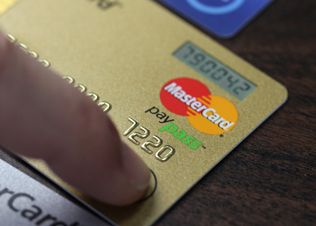News
Credit card fraud in restaurants
Wednesday, January 30th, 2013
You have a meal at a restaurant, order drinks at a bar and leave your card to run a tab, or swipe for a bottle of wine at the liquor store, and the next day someone is spending thousands of rand in your name in Peru. Even if it hasn’t happened to you, chances are that someone you know has been affected by credit card fraud.
Even though the South African Banking Risk Information Centre (SABRIC) reports that fraud of this kind in South Africa was down 18% in 2012, the losses still amount to a staggering R300.6 million. Debit card fraud also decreased by 7%, but figures still totalled R204 million.
Restaurateurs seem to confirm these statistics. Almost all of those interviewed for this story revealed having problems in the past, but most believe they now have a handle on it. Understandably, few are prepared to go on record.
Trustworthy staff
A Cape Town restaurateur explained why: “The members of public are very sensitive to information pertaining to credit card fraud, past or present.
“Often, victims have been shopping with their cards on the same day they eat at a restaurant, but they automatically assume staff at the restaurant were the culprits. Skimming takes place in retail stores, too.”
Big syndicates target bar, waiting and retail staff and arm them with an electronic device that can read the data off your card in a matter of seconds. This information is then sent to other corners of the world, and the fraudulent transactions begin.
Although this kind of crime does not cost the restaurant directly, as the banks ultimately refund the cardholder, it is still damaging to the image of an establishment. Nobody wants to frequent a place where there is a lingering suspicion of dishonest staff.
“It is something we take very seriously,” says another Capetonian, who runs two restaurants. “Through the years I have learnt that there are no shortcuts with getting to know and trust your staff.”
A restaurateur from Johannesburg comments, “We have had problems with skimming in the past, but we managed to stamp it out with portable credit card machines. However, there are other forms of credit card fraud. We now have to be more selective with who can order online from us.”
Scamming methods
In Cape Town, the owner of a restaurant and bar in Long Street recently had problems with stolen credit cards. He explains, “People come in with stolen credit cards, get acquainted with my staff and cut deals whereby they run the card through for an extra hundred rand of the original amount and split the difference with the staff member. I have now insisted that each credit card is accompanied by the original bill with the name of the staff member.”
Some waitrons manage to steal cards right from under their customers’ noses. One of the latest scams involves a waitron taking the card, running the transaction and then returning an old expired card belonging to someone else. Patrons are none the wiser, as the card looks exactly the same as the one handed over minutes earlier.
There are also reports of staff memorising the last three CCV numbers on the back of credit cards. The slip supplies them with the cardholder’s name, the credit card number and expiry dates. All they have to remember is those three digits, which enable them to shop telephonically or online.
Banking innovations to combat fraud
Some banking innovations have, however, had a positive effect on combating credit card fraud. Most banks have started to hide your credit card number on the slip, and these days most customers receive a text message each time a transaction occurs.
SABRIC CEO Kalyani Pillay ascribes the decrease in credit card fraud to industry initiatives such as the roll-out of ‘chip and pin’ cards. She also notes that customers appear to be taking heed of the banking industry’s crime awareness messages of safe banking practices.
These are Pillay’s hard and fast rules for protection against credit card fraud:
• Never let your credit card out of sight when making a payment. Go with your card to the point of sale terminal or ask for a portable device to be brought to you.
• Check the card you receive back from the cashier to ensure that it is indeed yours.
• Never give your card details to unsolicited callers.
• Don’t allow merchant websites to remember your password.
• Change your password and pin numbers periodically.
But don’t assume that cash is any safer. Pillay also warns against the skimming of cards at ATMs using hand-held devices or ATM-mounted devices. “Customers are urged to be observant when making ATM transaction and to never allow interference with their transactions by anyone, nor seek help from third parties.”
The underlying message on the avoidance of any bank card fraud seems to be: retain a high level of vigilance. You cannot be careful enough.
By JD Haasbroek
Photographs: Richard Scoble, Robert S Donovan and Goodforall








